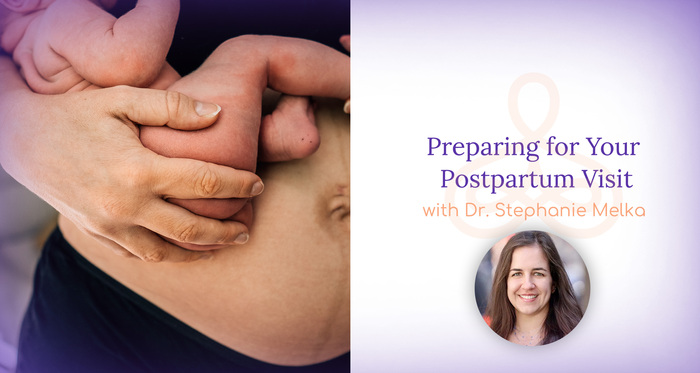In a recent episode of the Healthful Woman podcast, “Preparing for Your Postpartum Visit”, Dr. Nathan Fox and Dr. Stephanie Melka discuss the importance of the postpartum visit six weeks after delivery. They go in depth about the visits purpose, exercise, sexual activity, and birth control.
About Six-Week Check-Ups
The postpartum check is typically scheduled six weeks after delivery. By this time, most women have recovered enough to resume regular activity, although some heal faster than others. Dr. Melka stresses the importance of the six week appointment, “You don’t want to wait forever because there’s things that we’ll talk about and there’s things we want to address. Although most patients don’t need to be seen sooner, many patients should be seen sooner. Women with complicated deliveries, such as those involving heavy bleeding, high blood pressure, or emergency C-sections, may require earlier follow-up. These visits help ensure wounds are healing, your blood counts are stable, and any trauma is addressed.
What Happens During the Visit
The postpartum visit covers both physical and emotional health. A physical exam may include checking a C-section scar, assessing vaginal tears or lacerations, and ensuring the uterus has returned to its normal size. Providers also look for pelvic floor issues such as prolapse or diastasis recti. Patients are screened for postpartum depression and anxiety, which can appear even if the early weeks after birth have felt manageable. Dr. Melka shares, “Emotionally, we do a depression screen for all of our patients at the postpartum visit, screening for postpartum depression, anxiety, and other mood issues. And then the next big thing is sort of getting them now back from having delivered and recovered to now adjusting back to normal life.”
Common Concerns
Bleeding is one of the most common topics discussed at postpartum visits. For many women, bleeding tapers off by four to five weeks. Heavy or persistent bleeding may suggest retained placental tissue and may require imaging or other procedures. Addressing these issues at or before the six-week visit helps smooth your recovery.
Exercise and sexual activity are also discussed. While light activity may be safe earlier, particularly after a vaginal delivery, most physicians recommend waiting until the postpartum exam before resuming sex. This ensures the cervix and any stitches have healed, lowering the risk of infection or complications.
Family Planning and Birth Control
Contraception is another major part of the discussion at your six-week appointment. Options such as pills, implants, and IUDs may be started at or after the visit, though some require planning due to ordering or insurance coverage. For example, IUDs are typically placed after the uterus returns to normal size, while progesterone-only options may be started sooner. Each patient’s needs can help determine the safest and most effective method for them.
What to Expect After Your Postpartum Visit
For most women, the postpartum visit transitions into routine annual care. Dr. Fox states, “Some of the things that happen in pregnancy are things that need to be addressed also when you’re not pregnant. If someone has gestational diabetes, they need to be screened for diabetes when they’re not pregnant. If someone had high blood pressure in pregnancy, you need to have your blood pressure checked when you’re not pregnant, certain, you know, complications that happen in pregnancy. Let’s say you had preterm labor and a preterm delivery. It’s possible we’re going to want to have you meet with an MFM, like a specialist, you know, to make sure that this isn’t something that’s going to recur.” Patients are encouraged to contact their healthcare providers at any time after delivery if they have any concerns.
Learn More
If you are interested in learning more about your postpartum six-week visit, listen to the full episode of the Healthful Woman podcast. For information regarding birth, please contact Maternal Fetal Medicine Associates through their online contact form.

